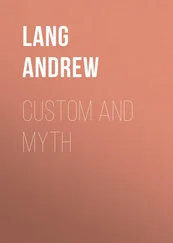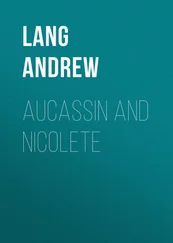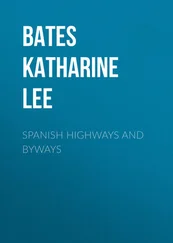Andrew Lang - Highways and Byways in the Border
Здесь есть возможность читать онлайн «Andrew Lang - Highways and Byways in the Border» — ознакомительный отрывок электронной книги совершенно бесплатно, а после прочтения отрывка купить полную версию. В некоторых случаях можно слушать аудио, скачать через торрент в формате fb2 и присутствует краткое содержание. Жанр: foreign_antique, foreign_prose, на английском языке. Описание произведения, (предисловие) а так же отзывы посетителей доступны на портале библиотеки ЛибКат.
- Название:Highways and Byways in the Border
- Автор:
- Жанр:
- Год:неизвестен
- ISBN:нет данных
- Рейтинг книги:4 / 5. Голосов: 1
-
Избранное:Добавить в избранное
- Отзывы:
-
Ваша оценка:
- 80
- 1
- 2
- 3
- 4
- 5
Highways and Byways in the Border: краткое содержание, описание и аннотация
Предлагаем к чтению аннотацию, описание, краткое содержание или предисловие (зависит от того, что написал сам автор книги «Highways and Byways in the Border»). Если вы не нашли необходимую информацию о книге — напишите в комментариях, мы постараемся отыскать её.
Highways and Byways in the Border — читать онлайн ознакомительный отрывок
Ниже представлен текст книги, разбитый по страницам. Система сохранения места последней прочитанной страницы, позволяет с удобством читать онлайн бесплатно книгу «Highways and Byways in the Border», без необходимости каждый раз заново искать на чём Вы остановились. Поставьте закладку, и сможете в любой момент перейти на страницу, на которой закончили чтение.
Интервал:
Закладка:
It is a story common enough, unhappily, that of Jeanne. She was the daughter of a Flemish Jew, very beautiful, very young, very light-hearted and loving, and unsuspecting of evil, of a disposition invincibly generous and self-sacrificing. In an evil hour the Fates threw across her path Sir Robert Stuart of Allanbank, then visiting the Hague during his travels on the Continent. Sir Robert was a man now no longer in his first youth, self-indulgent, callous of the feelings and rights of others where they ran athwart his own wants or desires, one to whom the seamy side of life had long been as an open book. His crop of wild oats, indeed, was ere now of rankest growth, and already on the face of the sower were lines that told of the toil of sowing. But he was a handsome man, with a fluent, honeyed tongue, and it did not take him long to steal the heart from one who, like the poor little Jeanne, suspected no evil.
To the Merse and to Allanbank there came word that the land was returning to his home. The house was to be put in order, great preparations to be made. No doubt, folk thought, all pointed to a wedding in the near future; the wild young baronet was about to settle down at last – and not before it was time, if what folk said regarding his last visit to Allanbank might be trusted. But the local newsmongers were wrong, in this instance at least of the home-coming and what might be expected to follow. When Sir Robert's great coach lumbered up to the door of Allanbank, there stepped down, not the baronet alone, but a very beautiful young woman, a vision all in lace and ribbons, whom the wondering servants were instructed to regard in future as their mistress. And though neighbours – with a few male exceptions – of course kept severely aloof, steadily ignoring the scandalous household of Allanbank, yet after a time, in spite of the fact that no plain gold band graced the third finger of Jeanne's left hand, servants, and the country folk generally, came to have a great liking, and even an affection, for the kindly little foreign lass with the merry grey eyes and the sunny hair, and the quaintly tripping tongue. And for a time Jeanne was happy, singing gaily enough from morning to night some one or other of her numberless sweet old French chansons. She had the man she adored; what mattered neighbours? And so the summer slid by.
But before the autumn there came a change. The merry lass was no longer so merry, songs came less often from her lips, tears that she could not hide more and more often brimmed over from her eyes; and day by day her lover seemed to become more short in the temper and less considerate of her feelings, more inclined to be absent from home. In a word, he was bored, and he was not the man to conceal it. Then when April was come, and the touch of Spring flushed every bare twig in copse or wooded bank down by the pools where trout lay feeding, when thrush and blackbird, perched high on topmost hough, poured out their hearts in a glory of song that rose and fell on the still evening air, a little daughter lay in Jeanne's arms, and happiness again for a brief space was hers. But not for long. The ardour born anew in her man's self-engrossed heart soon died down. To him now it seemed merely that a squalling infant had been added to his already almost insufferable burden of a peevish woman.
More and more, Jeanne was left to her own society and to the not inadequate solace of her little child. Then "business" took Stuart to Edinburgh. Months passed, and he did not return; nor did Jeanne once hear of him. But there came at last for her a day black and terrible, when the very foundations of her little world crumbled and became as the dust that drives before the wind. From Edinburgh came a mounted messenger, bearing a letter, written by his man of business, which told the unhappy girl that Sir Robert Stuart was about to be married to one in his own rank of life; that due provision should be made for the child, and sufficient allowance settled on herself, provided that she returned to her own country and refrained from causing further scandal or trouble. She made no outcry, poor lass; none witnessed her bitter grief that night. But in the morning, she and the child were gone, and on her untouched bed lay the lace and the jewels she once had liked to wear because in early days it had pleased her to hear the man she loved say that she looked well in them.
Time went by, and Stuart, unheeding of public opinion, brought his bride to Allanbank. Of Jeanne he had had no word; she had disappeared – opportunely enough, he thought. Probably she had long ago gone back to her own land, and by this time the countryside had perhaps found some other nine days' wonder to cackle over. So he returned, driving up to the house in great state – as once before he had driven up.
Surely an ill-omened home-coming, this, for the new bride! As the horses dashed up the avenue, past little groups of gaping country people uncertain whether to cheer or to keep silence, suddenly there darted from a clump of shrubbery the flying figure of a woman carrying in her arms a little child, and ere the postilions could pull up, or any bystander stop her, she was down among the feet of the plunging horses, and an iron heel had trodden out the life of the woman. It was the trampled body of that Jeanne whom he had lightly loved for a time and then tossed aside when weary of his toy, that met the horrified gaze of the white-lipped, silent man who got hurriedly down from inside that coach, leaving his terrified bride to shrink unheeded in her corner. And perhaps now he would have given much to undo the past and to make atonement for the wrong he had done. At least, he may have thought, there was the child to look after; and his heart – what there was of it – went out with some show of tenderness towards the helpless infant. But here was the beginning of strife, for Jeanne's baby did by no means appeal to the new-made bride. Nor was that lady best pleased to find in her withdrawing room a fine portrait in oils of her unlawful predecessor.
And so there was little peace in that house; and as little comfort as peace, for it came to pass that no servant would remain there. From the day of her death Pearlin Jean "walked", they said, and none dared enter the room which once she had called her own. That, of all places, was where she was most certain to be seen. For one day, when the master entered the room alone, they that were near heard his voice pleading, and when he came out it was with a face drawn and grey, and his eyes, they said, gazed into vacancy like those of one that sees not. So the place got ever an increasingly bad name, and the ghost of the poor unhappy Jeanne could get no rest, but went to and fro continually. And long after that day had arrived when her betrayer, too, slept with his fathers, the notoriety of the affair waxed so great that seven learned ministers, tradition says, united vainly in efforts to lay the unquiet spirit of Pearlin Jean. So long as the old house stood, there, they will tell you, might her ghost be seen, pathetically constant to the place of her sorrow. And there may not be wanting, even now, those who put faith in the possibility of her slender figure being seen as it glides through the trees where the old house of Allanbank once stood.
Some miles above Allanton, on the left bank of Whitadder, stands Blanerne, home of a very ancient Scottish family. And farther back from the river are the crumbling fragments of Billie Castle – "Bylie," in twelfth century charters, – and of Bunkle, or, more properly, Bonkyll, Castle. All these have met the fate assigned to them by the old local rhyming prophecy:
"Bunkle, Billie, and Blanerne,
Three castles Strang as aim,
Built whan Davy was a bairn;
They'll a' gang doun
Wi' Scotland's crown,
And ilka ane sail be a cairn."
Интервал:
Закладка:
Похожие книги на «Highways and Byways in the Border»
Представляем Вашему вниманию похожие книги на «Highways and Byways in the Border» списком для выбора. Мы отобрали схожую по названию и смыслу литературу в надежде предоставить читателям больше вариантов отыскать новые, интересные, ещё непрочитанные произведения.
Обсуждение, отзывы о книге «Highways and Byways in the Border» и просто собственные мнения читателей. Оставьте ваши комментарии, напишите, что Вы думаете о произведении, его смысле или главных героях. Укажите что конкретно понравилось, а что нет, и почему Вы так считаете.












